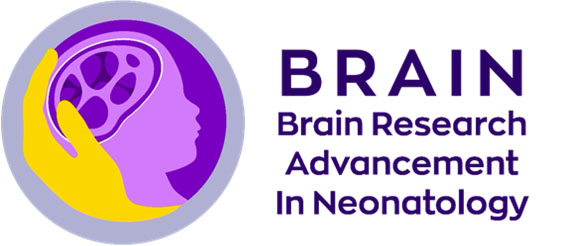
Mission
To improve neonatal neurodevelopmental outcomes through neuroprotection-focused research and clinical application.
Vision
To provide evidence-based national leadership in neonatal neurologic care and scholarship.
Specific Aims
- Improve neonatal neurodevelopmental outcomes through evidence-based research
- Investigate new neuroprotective therapies
- Support clinical evaluation and application of evidence-based therapeutics
- Promote advancement of research and educational scholarship for junior faculty and the next generation of neonatal care providers
- Explore mechanisms to reduce disparities in neurodevelopmental outcomes within the U.S. and globally
Funding
- University of Washington Neonatology Bioresearch Fund
- University of Washington Neonatology Division Faculty Start-up Funds
Peer-reviewed publication 2021-2023
-
Puia-Dumitrescu M, Comstock BA, Li S, Heagerty PJ, Perez KM, Law JB, Wood TR, Gogcu S, Mayock SE, Juul SE. Assessment of 2-year neurodevelopmental outcomes in extremely preterm infants managed with opioids and benzodiazepines. JAMA Netw Open. 2021 Jul 1;4(7):e2115998. doi: 10.1001/jamanetworkopen.2021.15998. PMID: 34232302.
-
Wood TR, Parikh P, Comstock BA, Law JB, Bammler TK, Kuban KC, Mayock DE, Heagerty PJ, Juul S. Early Biomarkers of Hypoxia and Inflammation and Two-Year Neurodevelopmental Outcomes in the Preterm Erythropoietin Neuroprotection (PENUT) Trial. EBioMedicine. 2021 Oct 4;72:103605. doi: 10.1016/j.ebiom.2021.103605. PMID: 34619638.
-
Law JB, Comstock BA, Richards TL, Traudt CM, Wood TR, Mayock DE, Heagerty PJ, Juul SE. Diffusion Tensor Imaging Changes Do Not Affect Long-Term Neurodevelopment following Early Erythropoietin among Extremely Preterm Infants in the Preterm Erythropoietin Neuroprotection Trial. Brain Sci. 2021 Oct 16;11(10):1360. doi: 10.3390/brainsci11101360. PMID: 34679424.
-
Law JB, Wood TR, Gogcu S, Comstock BA, Dighe M, Perez K, Puia-Dumitrescu M, Mayock DE, Heagerty PJ, Juul SE. Intracranial Hemorrhage and 2-Year Neurodevelopmental Outcomes in Infants Born Extremely Preterm. J Pediatr. 2021 Nov;238:124-134.e10. doi: 10.1016/j.jpeds.2021.06.071. PMID: 34217769.
-
Mayock DE, Gogcu S, Puia-Dumitrescu M, Shaw DWW, Wright JN, Comstock BA, Heagerty PJ, Juul SE; Preterm Erythropoietin Neuroprotection (PENUT) Trial Consortium. Association between Term Equivalent Brain Magnetic Resonance Imaging and 2-Year Outcomes in Extremely Preterm Infants: A Report from the Preterm Erythropoietin Neuroprotection Trial Cohort. J Pediatr. 2021 Dec;239:117-125.e6. doi: 10.1016/j.jpeds.2021.08.040. Epub 2021 Aug 26. PMID: 34454953; PMCID: PMC9052881.
-
Juul SE, Wood TR, Comstock BA, Perez K, Gogcu S, Puia-Dumitrescu M, Berkelhamer S, Heagerty PJ; PENUT Consortium. Deaths in a Modern Cohort of Extremely Preterm Infants From the Preterm Erythropoietin Neuroprotection Trial. JAMA Netw Open. 2022 Feb 1;5(2):e2146404. doi: 10.1001/jamanetworkopen.2021.46404. PMID: 35129596; PMCID: PMC8822378.
-
Puia-Dumitrescu M, Wood TR, Comstock BA, Law JB, German K, Perez KM, Gogcu S, Mayock SE, Heagerty PJ, Juul SE. Dexamethasone, Prednisolone, and Methylprednisolone Use and 2-Year Neurodevelopmental Outcomes in Extremely Preterm Infants. JAMA Netw Open. 2022 Mar 1;5(3):e221947. doi: 10.1001/jamanetworkopen.2022.1947. PMID: 35275165.
-
Valentine GC, Perez KM, Wood TR, Mayock DE, Comstock BA, Puia-Dumitrescu M, Heagerty PJ, Juul SE. Postnatal maximal weight loss, fluid administration, and outcomes in extremely preterm newborns. J Perinatol. 2022 Aug;42(8):1008-1016. doi: 10.1038/s41372-022-01369-7. Epub 2022 Mar 25. PMID: 35338252.
-
Juul S, Wood TR, German K, Law JB, Kolnik S, Puia-Dumitrescu M, Mietzsch U, Gogcu S, Comstock B, Li S, Mayock D, Heagerty PJ. Predicting 2-year Neurodevelopmental Outcomes in Extremely Premature Infants Using Graphical Network and Machine Learning Approaches. EClinicalMedicine. 2022 Dec 26;56:101782. doi: 10.1016/j.eclinm.2022.101782. PMID: 36618896.
-
Mietzsch U, Flibotte JF, Law JB, Puia-Dumitrescu M, Juul SE, Wood TR. Temperature dysregulation during the first 6 hours of therapeutic hypothermia predicts long-term outcome in neonates with HIE. J Cereb Blood Flow Metab. 2023 Mar 8:271678X231162174. doi: 10.1177/0271678X231162174. Epub ahead of print. PMID: 36883364.
-
Kolnik SE, Marquard R, Brandon O, Puia-Dumitrescu M, Valentine G, Law JB, Wood TR, Natarajan N, Manjiri D, Mourad PD, Mietzsch U. Preterm Infants Variability in Cerebral Near-Infrared Spectroscopy Measurements in the First 72-hours After Birth. Pediatric Search. - 2023 May 3. doi: 10.1038/s41390-023-02618-x. Epub ahead of print. PMID: 37138026.
-
Lenahan A, Mietzsch U, Wood TR, Callahan KP, Weiss EM, Miller DE, German K, Natarajan N, Puia-Dumitrescu M, Esposito V, Kolnik S, Law JB. Characteristics, Genetic Testing, and Diagnoses of Infants with Neonatal Encephalopathy Not Due to Hypoxic Ischemic Encephalopathy: A Cohort Study. J Pediatr. 2023 Jun 1;260:113533. doi: 10.1016/j.jpeds.2023.113533. Epub ahead of print. PMID: 37269901.
Outreach
Follow the BRAIN Team on X (formerly Twitter) @brain_uw
For more information about the BRAIN Team, send us an email: neobrain@uw.edu
BRAIN Faculty
Janessa Law, MD
Associate Professor Associate Medical Director, Valley Medical Center NICU Director – BRAIN Team
Mihai Puia-Dumitrescu, MD, MPH
Associate Professor NICU Associate Medical Director, Seattle Children’s Hospital Co-Director Congenital Diaphragmatic Hernia Program, Seattle Children’s Hospital Director of Clinical Research, Division of Neonatology
Sarah Kolnik, MD, MBA
Assistant Professor Associate Medical Director, UW Medical Center NICU Co-Director of POCUS Program Seattle Children's Hospital
Kendell R German, MD
Associate Professor Director of Research, Infant Development Follow‐Up Clinic Associate Program Director, Neonatal-Perinatal Medicine Fellowship
Ulrike Mietzsch, MD
Clinical Professor Co-Director, Neuro‐NICU, Seattle Children’s Hospital Associate Program Director Neonatal Neurocritical Care Fellowship Program





